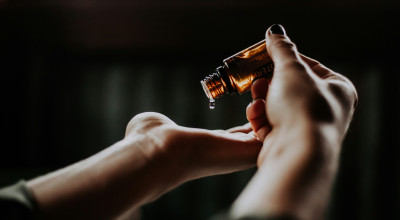Can Someone Be Addicted to Marijuana?
March 5th, 2019
Marijuana use is becoming more and more prevalent across the United States, especially as states begin to legalize both its recreational and medical use. As of January 2019, 33 states have legalized medical marijuana and 10 states have legalized recreational marijuana in addition to medical. Texas allows low THC-cannabis for medical use under very restrictive circumstances.
This growing acceptance of cannabis is impacting how people view using the drug. Many people believe that marijuana cannot be addictive – however, the National Institute on Drug Abuse estimates that nearly 30% of cannabis users have some degree of marijuana use disorder. It is important to remember that while cannabis is not a drug that can lead to overdose, it is still a drug – and people can still develop a dependence on it.
The Truth About Marijuana Addiction
The National Institute on Drug Abuse provides the following statistics about marijuana addiction among regular users:
- People who began using cannabis before they turned 18 are four to seven times more likely to develop an addiction than people who began using cannabis as an adult.
- Studies suggest that 9% of adults who use cannabis will develop a dependence on it.
- Studies suggest that 17% of teens who use cannabis will develop a dependence as well.
- In 2015, more than 11 million young adults between the ages of 18 and 25 used cannabis.
- In 2015, about 4 million Americans had symptoms of marijuana addiction.
- In 2015, only 138,000 Americans sought treatment for marijuana addiction.
To understand marijuana addiction, it is important to know what the drug is and how it affects the brain. Marijuana refers to the dried parts of the Cannabis sativa or Cannabis indica plants, containing a chemical known as THC. This chemical is psychoactive, inducing the following effects:
- Feelings of giddiness
- Impaired body movement
- Mood changes
- Altered physical senses
- Impaired judgement
- Difficulty thinking or remembering information
When consumed in very high doses, marijuana can also induce hallucinations, delusions, and psychosis.
Marijuana has increased in potency, which raises concerns about the potential short- and long-term effects the drug might have. In the early 1990s, the average marijuana sample had a THC content of 3.8%. In 2014, the THC content rose to 12.2% – and it may continue to increase over time.
People consume cannabis using a number of methods, including:
- Inhaling cannabis using joints, pipes, bongs, or blunts
- Eating items infused with cannabis oil or containing cannabis
- Drinking items infused with or containing cannabis
- Vaping cannabis oils
- Ingesting marijuana capsules
- The topical application of salves, creams, or bath salts
The Effects of Long-Term Cannabis Use
Many people do not realize how long-term cannabis use can significantly impact brain function, especially among teenagers and young adults. Unfortunately, this is a demographic that consumes cannabis in high numbers. Young cannabis users can see impacts on thinking, memory, and learning functions over time.
- A New Zealand study found that teen cannabis users lost an average of 8 IQ points between ages 13 and 38.
- Another study found that marijuana users between the preteen years and early adulthood lost an average of 4 IQ points.
- The National Institute on Drug Abuse’s Adolescent Brain Cognitive Development Study is currently tracking the brain development of a large number of adolescent Americans who use cannabis and other drugs.
In addition to the developmental effects, regular marijuana use also has a wide range of effects on a person’s physical and mental health:
- Issues during pregnancy
- Increased heart rate
- Breathing problems
- Nausea and vomiting
- Worsening schizophrenia
- Paranoia
- Hallucinations
Regular cannabis use may increase the presence of other mental health issues, including suicidal ideation, depression, and anxiety among young people.
Common Signs of Marijuana Addiction
How do you know if someone is suffering from marijuana addiction? There are a few common signs that can help you identify if a loved one has marijuana use disorder.
- Your loved one says that they will only smoke a small amount of cannabis, but ends up regularly smoking one or more joints.
- Your loved one has attempted to curb or stop their marijuana use, but failed.
- Your loved one has a high tolerance for marijuana and must smoke a large amount to feel the same effects.
- Your loved one experiences withdrawal symptoms when they stop smoking marijuana.
- Your loved one has stopped participating in activities they once loved.
- Your loved one shows up to work or school high on marijuana, despite repeated warnings or consequences.
- Your loved one spends lots of time getting high, wanting to get high, or searching for cannabis to get high.
- Your loved one chooses activities and friends based on the ability to smoke cannabis during these activities or with these friends.
- Your loved one needs marijuana to “relax” or do creative work.
- Your loved one repeatedly uses marijuana to escape from their problems, such as stress at work or problems at school.
- Your loved one becomes unreliable and spends less time with friends and family, or performing daily tasks in order to get high.
Marijuana Withdrawal Symptoms
One of the most obvious signs of a marijuana addiction is the presence of withdrawal symptoms when your loved one tries to quit using it. Excessive marijuana use, or smoking at least once per day, can lead to dependency like any other drug. Common withdrawal symptoms include:
- Loss of focus
- Increased feelings of depression
- Irritability
- Diminished appetite
- Strong cravings for marijuana
- Stomach and digestion issues
- Difficulty sleeping
- Cold sweats and excessive sweating
- Mood changes
- Chills
Marijuana withdrawal symptoms vary from person to person and can range from mild to severe. While marijuana withdrawal symptoms are not as dangerous as withdrawal symptoms for harder drugs, they are still unpleasant and hard to handle alone. The longer your loved one used marijuana, the more difficult the withdrawal symptoms become.
Handling marijuana withdrawal symptoms is possible with the right level of support. Make sure your loved one drinks lots of water and eats a healthy diet full of protein, fruits, and vegetables. Encourage them to exercise for at least 30 minutes per day. Finally, look into enrolling your loved one at a rehabilitation center that offers marijuana addiction treatment like Windmill Wellness Ranch.
Contact Windmill Wellness Ranch Today
Are you or a loved one suffering from marijuana addiction? Help is available. Windmill Wellness Ranch offers comprehensive and holistic marijuana addiction treatment at our private facility in Canyon Lake, Texas. Our programs include group therapy, detox monitoring, and wellness programming such as art therapy and daily exercise. We provide both neurotechnology and therapy programs to heal the spirit, body, and brain from addiction.
Contact Windmill Wellness Ranch today to learn more about our marijuana treatment program and how to enroll.


